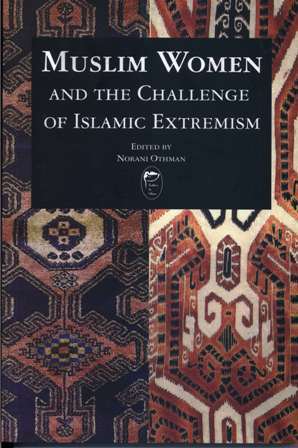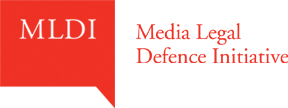In our Selected Exhortations category, we republish interesting stuff such as must-read articles and essays not originally written exclusively for the blawg, and which have come to our attention. Please feel free to email [email protected] if you would like to reproduce your writing, but first follow our Writer’s Guide here.
Here’s a statement issued by the Media Legal Defence Initiative welcoming the Court of Appeal decision upholding the High Court’s decision to quash the ban on a book published by Sisters in Islam. The original statement is here.
Media Legal Defence Initiative welcomes the Malaysian Court of Appeal’s recent decision that the Home Minister acted “irrationally” in banning a book that had already been in circulation for two years when there was no obvious threat to public order.
The Malaysian Ministry of Home Affairs had demanded that the court “re-ban” the publication “Muslim Women and the Challenges of Islamic Extremism” – the ministry’s initial banning of the book, in 2008, having been overturned by the High Court. In a sharply worded judgment, the Court of Appeal refused to do so.
 Considering the apparent lack of evidence to justify the ban, Justice Datuk Abdul Wahab Patail criticised the Government’s initial ban as “an outrageous defiance of logic that falls squarely within the meaning of unreasonableness, and of irrationality.”
Considering the apparent lack of evidence to justify the ban, Justice Datuk Abdul Wahab Patail criticised the Government’s initial ban as “an outrageous defiance of logic that falls squarely within the meaning of unreasonableness, and of irrationality.”
The Malaysian Ministry of Home Affairs had initially banned the publication on the grounds that it was “prejudicial to public order” under Section 7(1) of the Printing Presses and Publications Act 1984. Prior to this decision however, the book had been in circulation for two years without any apparent prejudice to public order ever being recorded. The book is a compilation of essays and research by eminent international scholars and female activists, published by the Muslim women’s rights organisation, Sisters in Islam.
Extensive government censorship of the media continues to be a problem in Malaysia. The government is well reputed for using a palette of national laws to prohibit politically sensitive publications, stifling any possibility for informed and honest public debate as to the issues they raise. Old-fashioned sedition laws are in active use alongside with strict print licensing laws and national security legislation.
But despite Malaysia’s ruthless censorship of newspapers and other print publications, the country has a vibrant internet media and enjoys much greater freedom of expression online. This originates from a 1996 government promise not to censor the internet, along with with the launch of its “Multimedia Super Corridor”, an initiative designed to attract foreign investment into Malaysia’s developing ICT industry. By simply choosing to print the book in question, as opposed to publishing it online, Sisters in Islam became instantly vulnerable to government censorship.
The gauntlet for freedom of expression doesn’t stop there. Malaysia’s dual legal system presents an added challenge in that publications which have not been banned under civil law are still susceptible to being censored under Islamic Law. In a recent complaint regarding this clash of legal systems, Borders books store sought judicial review of a Federal Territories Islamic Department’s decision to seize a number of copies of a controversial book without a prior ban being issued from the Home Ministry.
Against this background, the Court of Appeal’s decision in the Sisters in Islam case represents a ray of hope and demonstrates that with good lawyering even Malaysia’s very strict censorship laws can be defeated. The case was defended by Malik Imtiaz and Shanmuga K.
MLDI continues to support other media freedom cases in the country.
Read Also:
- MCCHR Intern Suki Prem Kumar’s Is Book Banning Justified?
- Clive Kessler’s An Interesting Morning In The Court


Nice!